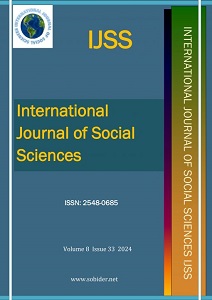Eğitim Yönetiminde Etkili Metodik Değerlendirme Süreçlerinin İncelenmesi
Examination of Effective Methodical Evaluation Processes in Educational Management
Author(s): Halil Bektaş, İlker Vursavaş, Hayrettin Tunç, Ayşegül Bileyen, Engin Sarıcan, Zeynel KabakcıSubject(s): Education, School education, Management and complex organizations, Sociology of Education, Pedagogy
Published by: SD Yayınevi
Keywords: Educational Management; Educational Effectiveness; Methodical Evaluation;
Summary/Abstract: Methodically making a negative assessment of the effectiveness and efficiency of a policy or program immediately, rather than over a broader period of time, may lead to the termination of the program. When evaluating an institution in educational management, the content of the evaluation, it and the values involved in the event will affect the final evaluation as a whole. In this context, one of the decisions that should be taken before making any policy evaluation is to determine who should make the evaluation. The specific circumstances surrounding the necessity for any evaluation will have a significant impact on the alternative that will be selected. Within this framework, the suitability of time, financing situation, subject matter expertise, understanding of evaluation findings and management support, etc. the concepts of internal evaluation and external evaluation stand out in terms of the functioning of processes. Internal assessments have other advantages, such as low cost. In addition, internal evaluators are more predisposed to the organization itself, the evaluated program and related policies, corporate stakeholders and the target audience. The biggest disadvantage of internal evaluation is its real and perceived biases. There is real prejudice. Because it is human nature for corporate members to perceive program errors through the lens of their common corporate experience. External evaluations also have a number of advantages in terms of minimizing biases, at least internal biases. The most important advantage of external evaluation is that evaluators are perceived as impartial because they have no interest in the evaluation results. The plus advantage of using external evaluators is that they are not part of the corporate culture, program and evaluated policy, and their professionalism, previous experience, training, values and perceptions offer them a completely different perspective on problem identification and potential improvements. An important disadvantage of using external evaluators is that it is more expensive than internal evaluation and more time is needed. External evaluations take more time. Because evaluators need to internalize the programs or institutions as well as the policies, programs and institutions they evaluate.
Journal: Uluslararası Sosyal Bilimler Dergisi
- Issue Year: 8/2024
- Issue No: 33
- Page Range: 230-245
- Page Count: 16
- Language: Turkish

